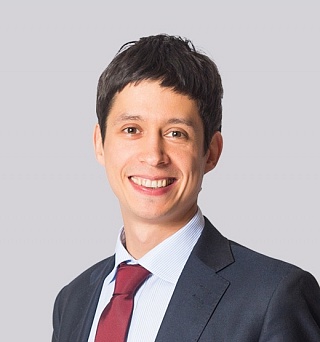Prosecuting illegal video content and AI aspects
25 March 2024Introduction
The law follows the real life – technical and cultural achievements of the human beings. When something becomes common and needs to be more formalized, the legislator adopts a new law.
Artificial Intelligence (AI) and a number of AI-products and technologies are now widely applied in science, commerce and the art. Some jurisdictions have already introduced some basic regulations related to AI, some have not yet. There is no specialized law, dedicated to intellectual property aspects of AI in Russia, although state authorities and professionals are intensively discussing the initiatives and draft laws focused on AI. The first and most essential legal issue surrounding AI are the ownership/authorship to the works generated by AI.
This article refers to a recent copyright dispute in which a Deepfake technology (a form of AI) was applied to create a videoclip. The court found copyright infringement, although the defendant believed that the video should not enjoy copyright protection as it was a result of AI.
Facts
Reface Technologies LLC (the Plaintiff/Reface) ordered a videoclip and acquired all intellectual property rights to the videoclip from a third party (the Producer). The Deepfake technology, which is a form of generative AI, was applied to create the video by the Producer.
Reface became aware that Business Analytics LLC (the Defendant) placed the video on the Internet. Reface filed a civil action with Moscow Commercial Court, demanded permanent injunctions and monetary compensation in the amount of 500 thousand Rubles.
The key defensive argument of Business Analytics was that the video should not be treated as a work of copyright, recognized by the law. The Defendant argued that the law should not protect the video because it had been created by AI, i.e. without the author’s creative input.
In turn, the Plaintiff explicitly proved that there was a group of authors and the actor, involved in the production of the video. They were the scriptwriter, cameraman-director, motion designer, and actor. The Producer of the video organized and invited those people to produce the video. And the intellectual property rights were assigned from those individuals to the Producer. As to the Deepfake technology, it was applied at the very final stage of production in order to replace the face of the actor with another image and thus it, in no way, should affect the legal nature of the video and exclude it from copyright protection.
In November 2023, the first instance court did a comprehensive study and satisfied the claims in full. The judge provided two important comments to understand this dispute. The first was, the video had been created by the group of authors (not by the AI itself), meaning that there had been creative input of the real people to produce the video; The second, the use of AI (Deepfake) in terms of production of the video should not prejudice the copyright protection and other rights vested in the video;
However, the defendant did not give up and filed the appeal to be considered by the Ninth Commercial Court of Appeals soon (case # А40-200471/2023).
Comments and takeaways
The precedent described above has a number of practical tips and shed some light on the situation around AI in general. The minimum takeaway from this case are:
- The legal practice around AI and neural networks is intensively growing despite the lack of the specialized IP laws in this field;
- When you treat any matter related to the works generated by/with AI you should study and check if the work is totally generated by AI or the human being is part of creative process;
- If the work is produced by a creative input of a man and after it is modified with AI, the work shall enjoy copyright protection;
- There is a presumption in the law that any work of art is considered as a creative one, unless the otherwise is found;
- A mere fact that AI was applied to modify/improve the work created by a man shall not jeopardize the intellectual property rights vested in the work and the enforcement of the IP rights to that kind of work shall not be affected;
- It is currently under discussions and the law is silent about who shall be considered as the author of the work totally generated by AI and whether the law shall protect such works.











